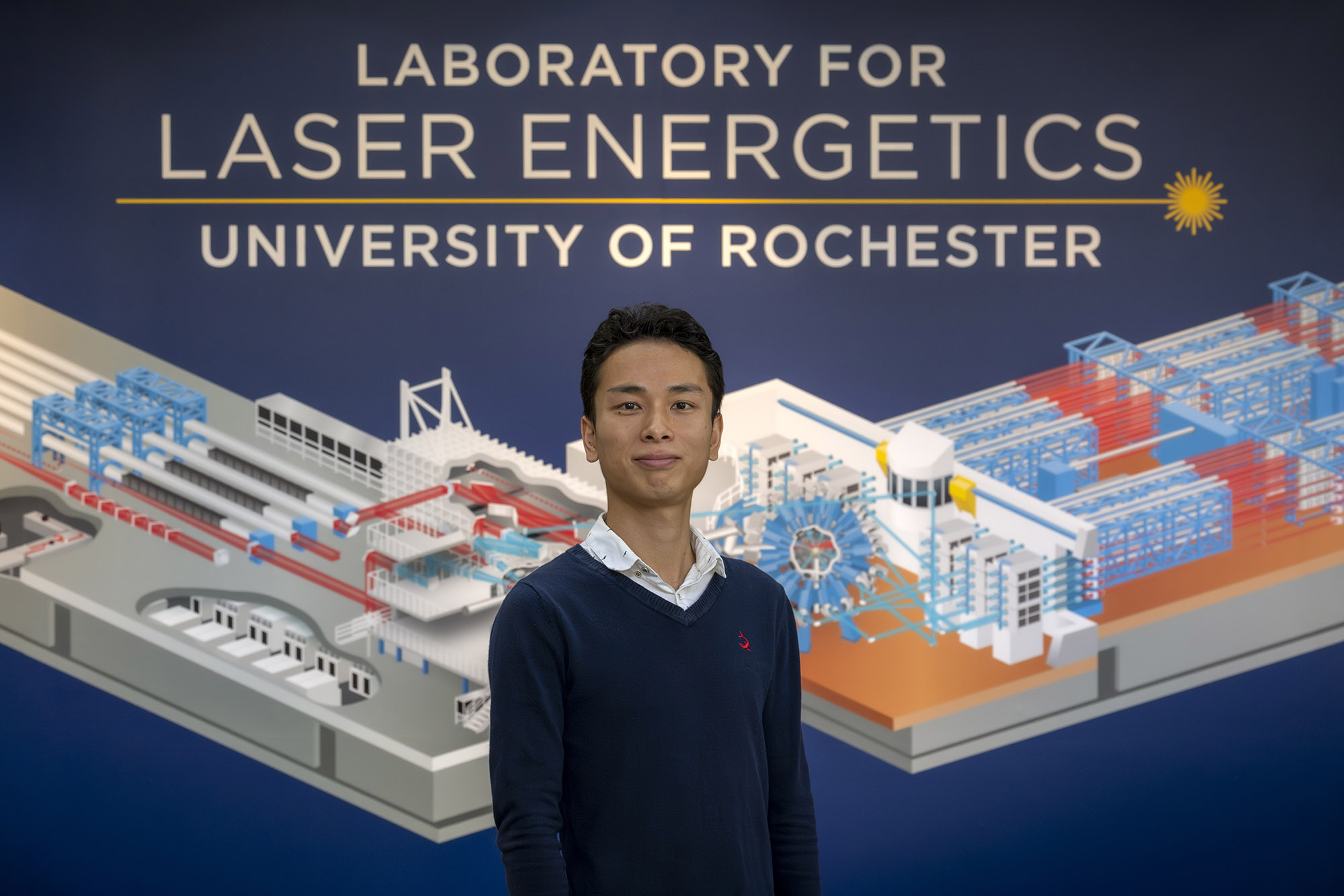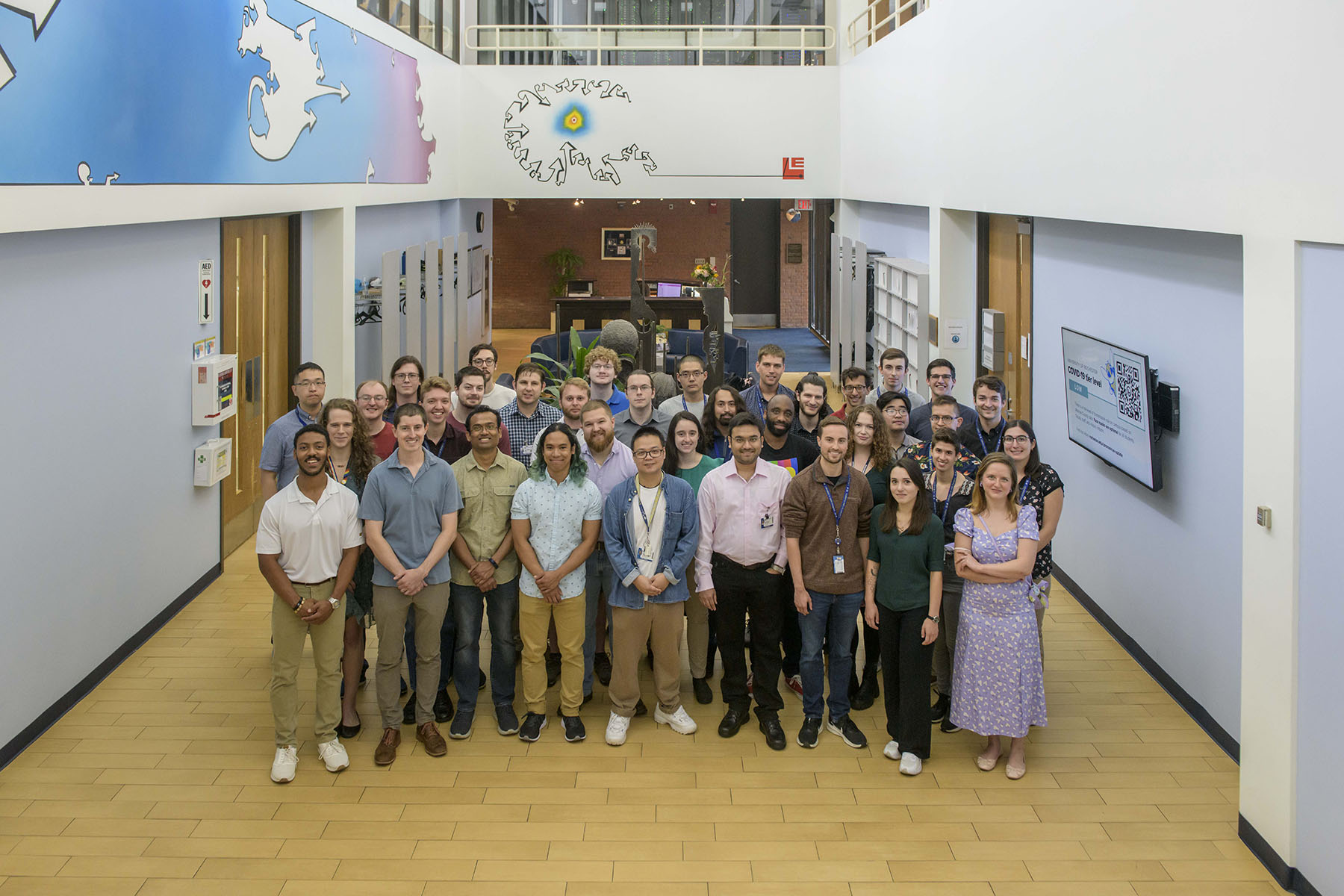
The Horton Fellowship Program
Established in 1993 to honor the legacy of longtime LLE supporter and U.S. Congressman Frank J. Horton, the Horton Fellowship provides full tuition and a competitive stipend to outstanding graduate students pursuing a PhD at the University of Rochester. More than 260 students from across the country and around the world have benefited from this prestigious opportunity, conducting research at the cutting edge of high-energy-density physics, laser–plasma interaction, and fusion science.
Horton Fellows join a vibrant, collaborative research community, gaining hands-on experience with world-class laser systems and benefiting from close mentorship by LLE scientists and engineers. The fellowship is renewable annually and supports students making progress toward completing their PhD, typically within five years.
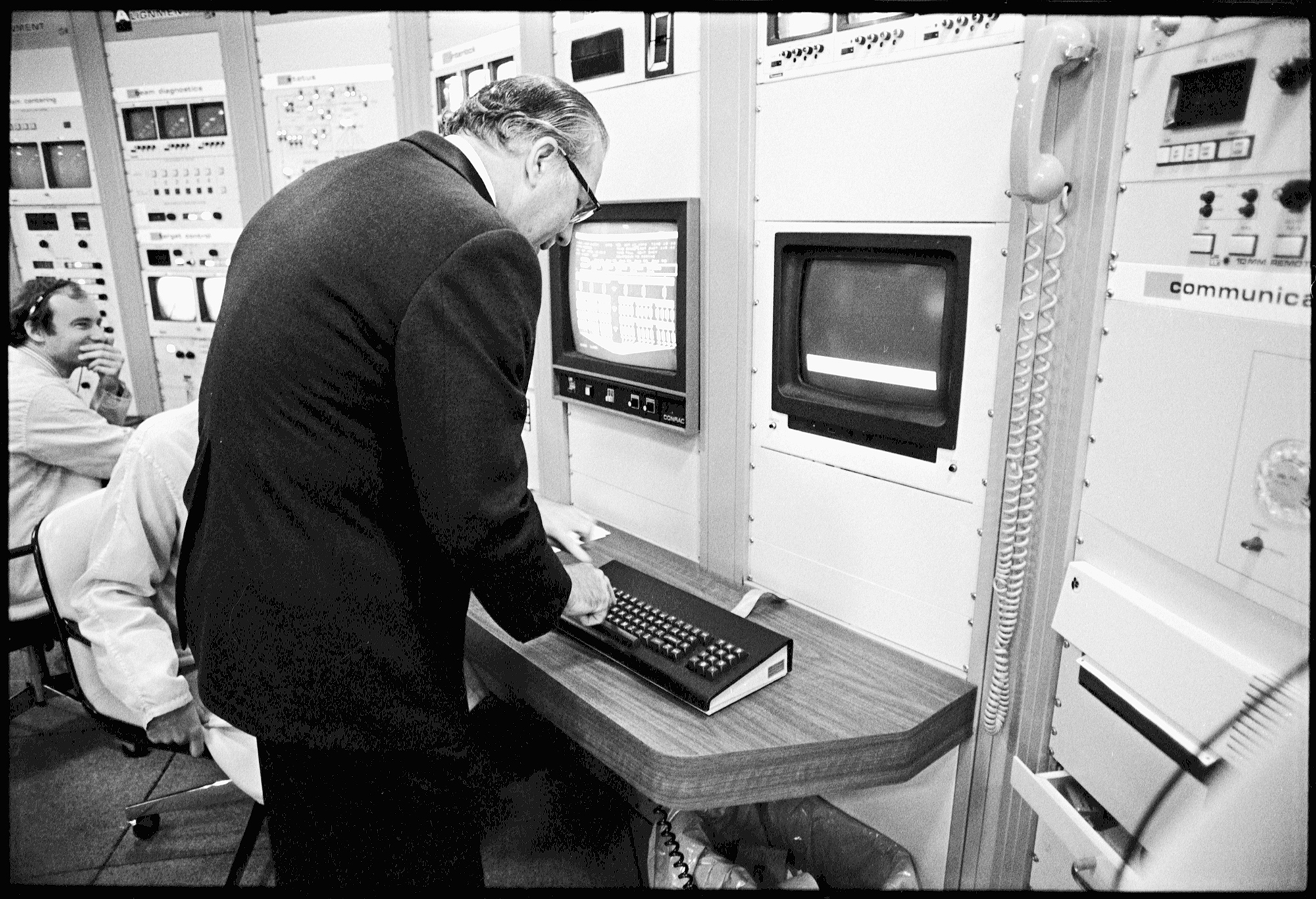
Congressman Horton was instrumental in building federal support for LLE’s mission, recognizing the Laboratory as “one of the most-exciting and significant energy research centers in the nation.” Today, the fellowship bearing his name continues to support students who are making significant contributions to science and shaping the future of energy research. Many Fellows have gone on to successful careers in national labs, academia, and industry—and some have stayed on at LLE to mentor the next generation.
Shown here is Horton firing the first shot on ZETA, a laser comprising the first six beams of OMEGA, on October 17, 1978. The shot generated more than 300 million neutrons and climaxed the morning of what University President Robert L. Sproull called “a great day in the life of this University.”
In their own words
“What is the most surprising, unique, or rewarding thing you have learned, experienced, or accomplished as a graduate student at LLE?”
The most beneficial aspect about being a student at LLE is the immediate access you have to experts across many fields–plasma physics, high-energy-density physics, diagnostics and detectors, laser systems, and many others. As a personal example, I recently asked a senior scientist about a problem that I was working on. He invited me over to his office and promptly handed me an original print of an article that he had published on the exact subject over 30 years ago. This is one of countless examples of the ongoing legacy of expertise cultivated at LLE.
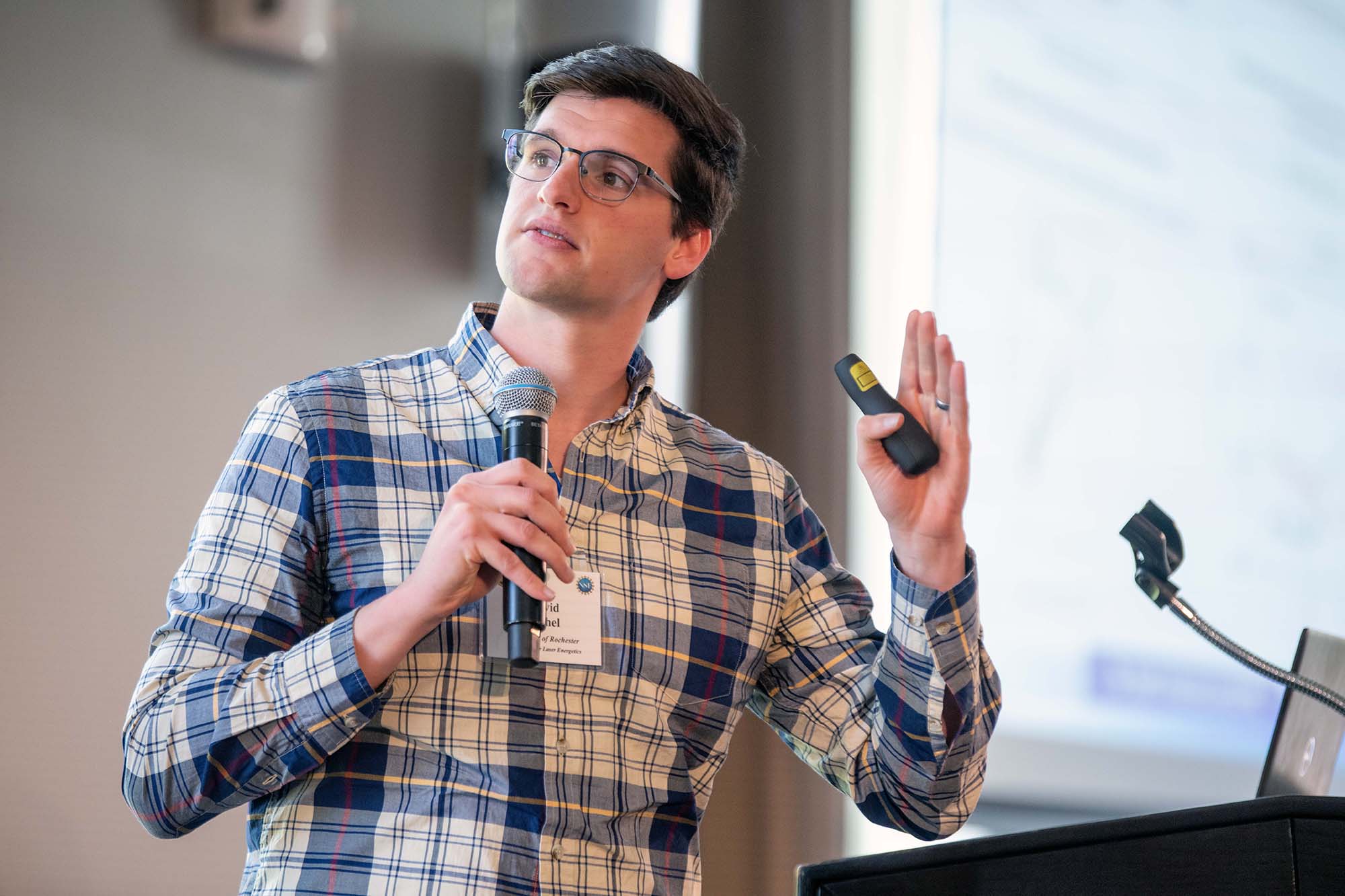
The people at LLE are very cooperative and understanding. They are also very willing to share their knowledge and guide me through the complicated processes of using LLE facilities. Performing experiments on the big laser systems is also very rewarding, since they are not at all common in typical university labs. I’m amazed by the intricacy of those lasers.
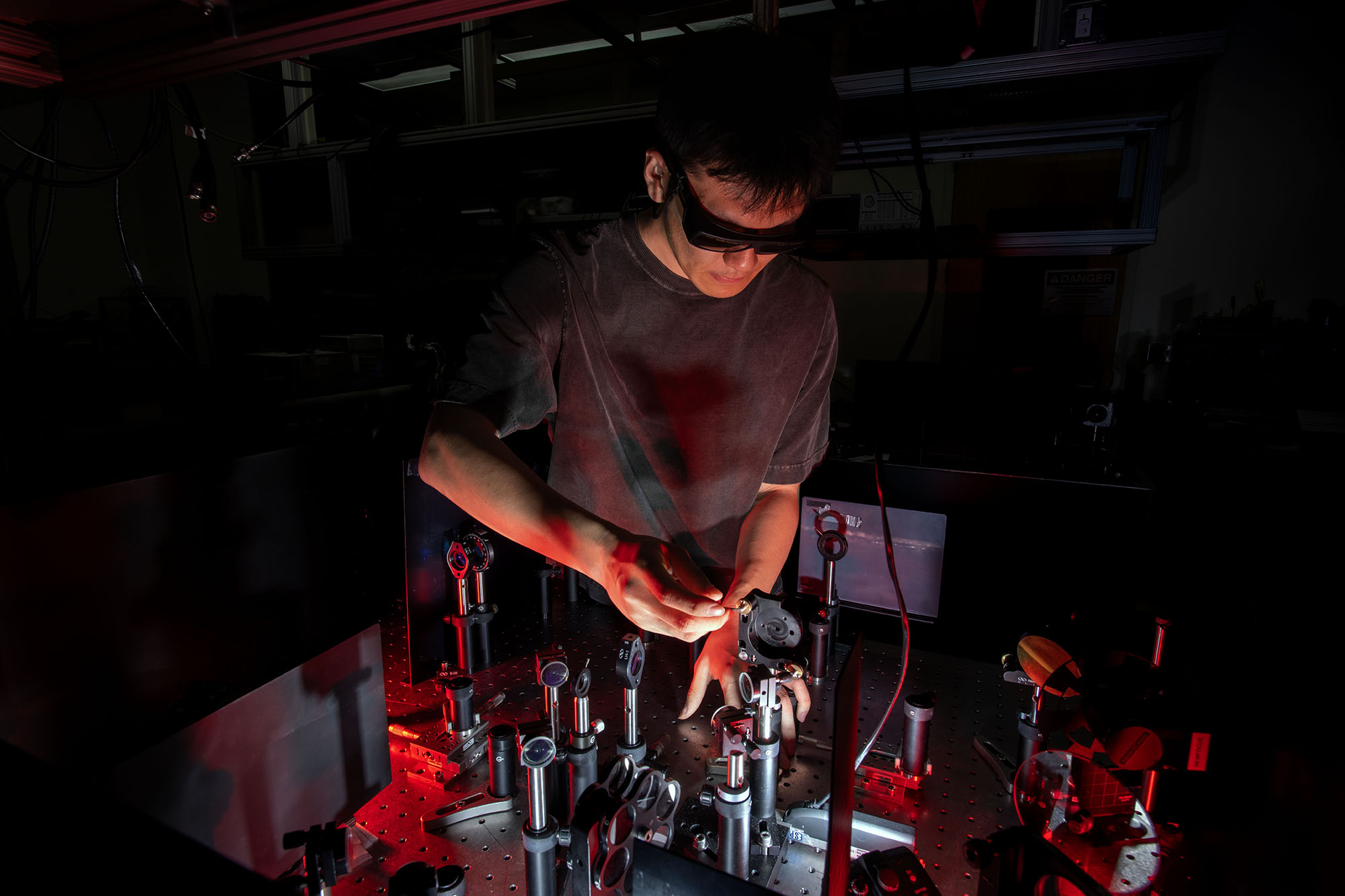
I’ve learned a lot by leaning on my peers. My research has been extremely complicated at times, and I have found that it is a fool’s errand to try to solve every problem I encounter on my own. I think collaboration is necessary to succeed in an academic environment.
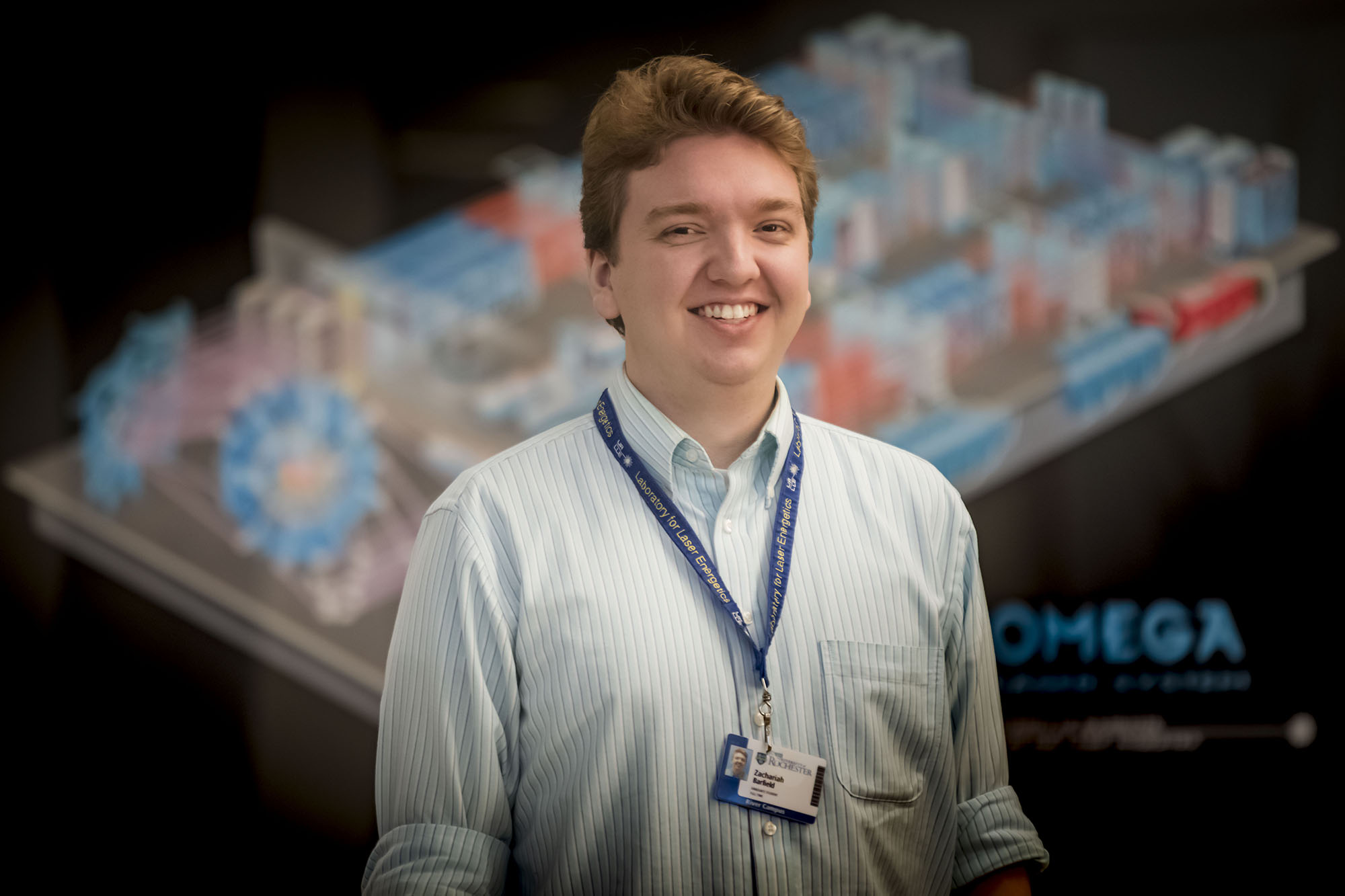
LLE is one of the most important hubs in plasma physics studies and maybe the best platform for graduate students pursuing a degree. In the area of plasma physics, LLE has almost every renowned scientists and experts in this field.
